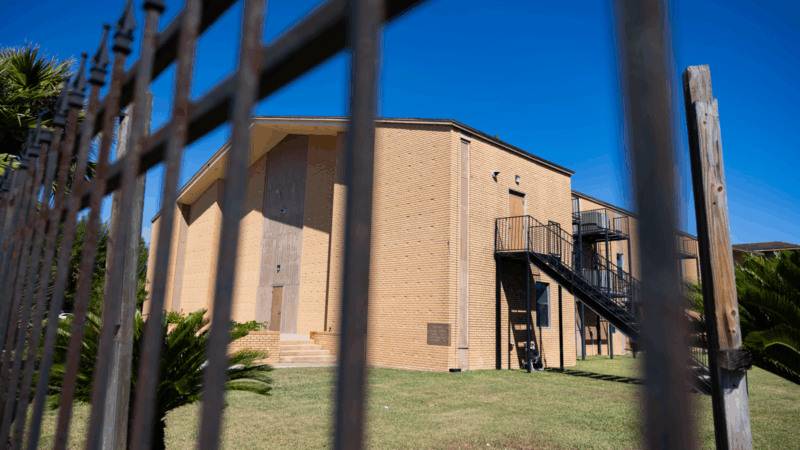Indian authorities begin investigating Air India crash in which 1 passenger survived
MUMBAI, India — India’s Aircraft Accident Investigation Bureau has begun investigating Thursday’s deadly Air India crash, one of the country’s worst aviation accidents in decades, with assistance from the U.S. National Transportation Safety Board and British investigators. Authorities said the plane’s flight data recorder, or black box, was recovered from a rooftop at the crash site. “This marks an important step forward in the investigation. This will significantly aid the enquiry into the incident,” the government’s Civil Aviation Minister Ram Mohan Naidu posted Friday on X.
The passenger in seat 11A on Air India flight 171 was the only one to walk out of the burning rubble — the lone survivor of the London-bound flight that crashed into a medical college and burst into flames on Thursday, just after it departed from the airport in the northwestern Indian city of Ahmedabad, with 242 passengers and crew aboard.
Authorities said they were undertaking DNA testing to identify the remains of the victims, who were burned beyond recognition. Local media reported that so far, only six could be returned to their families. State-run media reported that India’s aviation watchdog, the directorate general of civil aviation, ordered Air India to undertake extra safety checks on its Boeing 787-8 and 787-9 planes “as a preventative measure.”
The surviving passenger, 40-year-old British citizen Vishwaskumar Ramesh, was hospitalized with non-life threatening injuries, shortly after he walked out of the crash site. In footage shared by local media, he was seen bloodied, dazed and clutching his mobile phone.
“I just walked out, innit,” he told the Indian daily The Hindu. From his hospital bed, he told other media that after the plane crashed, he managed to push aside the emergency exit door. “I can’t explain, it’s a miracle, everything.” He had been traveling with his brother, who was a few seats away and was killed.
Other casualties included five medical students who’d gathered for lunch at a cafeteria when the plane hit. Also killed were bystanders — a 15-year-old boy who had delivered lunch to his mother, who ran a nearby roadside stall, and a grandmother who was delivering packed lunches in the company of her 2-year-old granddaughter.
The people of the state of Gujarat, where Ahmedabad is the capital, have long sought their fortunes abroad, and it was clear in the roster of victims who’d been on the flight: a man who surprised his father with a visit over the Muslim holiday of Eid; another who was returning home after attending his father’s funeral. There was a single mother returning to her nursing job in the U.K.
The victims also included one of the directors of an Indian company, Lubi Pumps, who was traveling with his wife to visit his sister in London. “It’s a tragedy in how fragile life can be,” his colleague Samir Desai told NPR. “There’s no assurity about the next moment, what’s going to happen.”
The tragedy comes amid India’s ambitions to be a global transportation hub, and as the Hindu nationalist government of Prime Minister Narendra Modi builds airports across regional centers at breakneck speed. India recently became the world’s third-largest domestic aviation market, according to state-run News On Air, which cited data from the Official Airline Guide, a global travel data service which provides aviation analytics.
But Indian aviation safety expert Amit Singh, a former pilot, told NPR that even as the industry is expanding, the safety culture is lacking. “The main issue is the relationship with the regulators and the operator,” Singh said. “There’s a lack of trust.”
“People who are in the safety [industry] were not surprised — because they were expecting something big to happen,” Singh said of Thursday’s accident. “Something … does not happen out of the blue, there are always precursors to it — you’ll have small incidents, then major incidents, then a big accident.”
He referred to a plane crash in India in 2020, when a plane skidded off a runway, killing 21 people, and accidents at flight schools. “Then suddenly, you have this,” he said.
Another aviation safety expert, Mohan Ranganathan, told NPR that many of India’s airports did not comply with safety standards to ensure there are no large obstacles near airports. He referred to Thursday’s accident, in which the plane crashed into a six-story building just seconds after takeoff. “Such a tall building, very close to the takeoff path, just 300 meters [980 feet] from the compound wall, may be a serious violation,” he said.
Ranganathan accused India’s aviation watchdog of giving “licenses without proper checking, and the [government run] airport authority keeps violating, because India has one of the weakest judiciaries as far as aviation safety is concerned. They’ll never give a verdict against the government agencies.”
“If this doesn’t wake them up, nothing will. Mumbai is a time bomb waiting to happen,” he said, referring to India’s populous port megacity and financial capital, where part of the airport is ringed by densely populated informal settlements.
NPR reached out to India’s civil aviation authority, the federal aviation minister, Air India and its corporate owners, the Tata Group, for comment on these allegations but did not receive a response.
Indian media quoted N. Chandrasekaran, chairman of the Tata Group, as saying, “We will be completely transparent about the findings.”
Chandrasekaran said the company took “its responsibility to society seriously, and that includes being open about what occurred yesterday.” The Tata Group also said it would provide more than $100,000 to the families of each victim, and offered to cover medical care for the wounded.
Reuters reported Friday that the Tata Group has faced repeated problems with Air India since purchasing the airline in 2022. Air India’s woes aren’t ending soon: it had to cancel and divert flights after Israel’s overnight strikes on Iran, and a bomb threat on one flight forced the pilots to make an emergency landing in Thailand.
The plane involved in Thursday’s crash was a Boeing 787 Dreamliner. It has not been involved in major accidents before now, and is a workhorse of long-haul flights. However, according to India’s aviation watchdog, in August 2023, an Indian Air 787 Dreamliner was forced to make an emergency landing shortly after takeoff at Mumbai airport.
Boeing has been under intense scrutiny over faults with its 737 Max that caused two plane crashes in 2018 and 2019 that killed more than 300 people.
Boeing has said it will support the investigation led by Indian authorities.
Transcript:
STEVE INSKEEP, HOST:
There is a lone survivor after one of the worst aviation accidents in the history of India. An Air India flight bound for London crashed into a medical college shortly after departure on Thursday. At least 249 people were killed, but let’s focus on the one who was not. NPR’s Diaa Hadid is in Mumbai. Hi, Diaa.
DIAA HADID, BYLINE: Hi there, Steve.
INSKEEP: This is incredible. You would presume – that’s the way I think about it – if this plane goes down, everyone will die with it. That’s a reasonable assumption, but in this case, there was one survivor. What was his story?
HADID: It seems almost miraculous, as you say. He was the passenger in seat 11A. And he somehow managed to escape out of the emergency exit after the plane hit the medical college and burst into flames from the – and that happened just moments after it had taken off from the airport in the northwestern city of Ahmedabad. And there was video circulating after the crash where this fellow, who was visibly wounded, dazed and confused, clutching his mobile phone, just walks out of the crash site. Now, we know who he is now. He’s 40-year-old British citizen Vishwash Kumar Ramesh (ph). And he’s in hospital now, receiving psychiatric care. As for everybody else, authorities are undertaking DNA tests on relatives to identify the bodies. This was an enormous blast.
INSKEEP: And I would imagine that the casualties were not only on the plane, given that it struck buildings.
HADID: That’s right. In an unfortunate coincidence, in that medical college, there were students who’d gathered for lunch, and so seven people were killed there, including five medical students. It also killed a 15-year-old who’d delivered lunch to his mum, who was running a tea side – a roadside tea stall nearby.
INSKEEP: So what else is known about people who were on the plane, other than the sole survivor?
HADID: Well, I think what it tells us is a little bit about Ahmedabad, the city that this crash happened in, and the state, Gujarat. There are so many people here who live abroad. It has a huge expatriate population, and you can see that in the stories of the victims. One man on the plane was with his wife and a little girl. They were returning home to England after visiting his parents. Another man was returning home after his father’s funeral. It also included an Indian company director, who was on the flight with his wife to visit his sister in London. And we caught up with his colleague Samir Desai.
SAMIR DESAI: It’s a tragedy in how fragile life can be. There’s no assurity about the next moment, what’s going to happen.
INSKEEP: In this case, you have a plane that takes off. There’s video. It seems normal. Then it starts losing altitude. Then it hits the ground with an explosion. Any idea why?
HADID: Yeah. Indian investigators are trying to assess the cause, and they’re getting help from the U.S. National Transportation Safety Board and British investigators. But an aviation safety expert, Amit Singh, told us there may have been issues with the aircraft, or even crew, but there’s a tendency to hide those problems. He says regulators and operators aren’t working well together.
AMIT SINGH: There’s a lack of trust, so none of the parties trust each other.
HADID: And another expert told Indian outlet News Minute that this crash, whatever the reason, was likely made worse because there’s so much development around airports that shouldn’t be there. So when there’s a problem, pilots can’t safely land. This is Mohan Ranganathan.
(SOUNDBITE OF ARCHIVED RECORDING)
MOHAN RANGANATHAN: You cannot have garbage dumps. You can’t have slaughterhouses. And so many restrictions are there, and that is violated everywhere.
HADID: Now, Indian regulators have not yet responded to those allegations. And the Dreamliner, which was the plane in this flight, has not been involved in an accident like this before.
INSKEEP: OK. Diaa, thanks very much for the update. Unbelievable story. Really appreciate it.
HADID: You’re welcome, Steve.
INSKEEP: NPR’s Diaa Hadid is in Mumbai.
(SOUNDBITE OF MUSIC)
Voting nears to a close in Texas primary that may be crucial to control of the Senate
The GOP and Democratic primaries mark a potential litmus test for what direction base voters want their parties to go ahead of midterm elections this fall that will determine power in Congress.
Pregnant migrant girls are being sent to a Texas shelter flagged as medically risky
Government officials and advocates for the children worry the goal is to concentrate them in Texas, where abortion is banned.
The 2026 World Cup faces big challenges with only 100 days to go
Will Iran compete? Will violence in Mexico flare up? And what about funding for host cities in the U.S.? With only 100 days left before it beings, the 2026 World Cup in North America is facing a lot of uncertainty.
A glimpse of Iran, through the eyes of its artists and journalists
Understanding one of the world's oldest civilizations can't be achieved through a single film or book. But recent works of literature, journalism, music and film by Iranians are a powerful starting point.
Mitski comes undone
She may be indie rock's queen of precisely rendered emotion, but on Mitski's latest album, Nothing's About to Happen to Me, warped perspectives, questionable motives and possible hauntings abound.
This quiet epic is the top-grossing Japanese live action film of all time
The Oscar-nominated Kokuho tells a compelling story about friendship, the weight of history and the torturous road to becoming a star in Japan's Kabuki theater.






